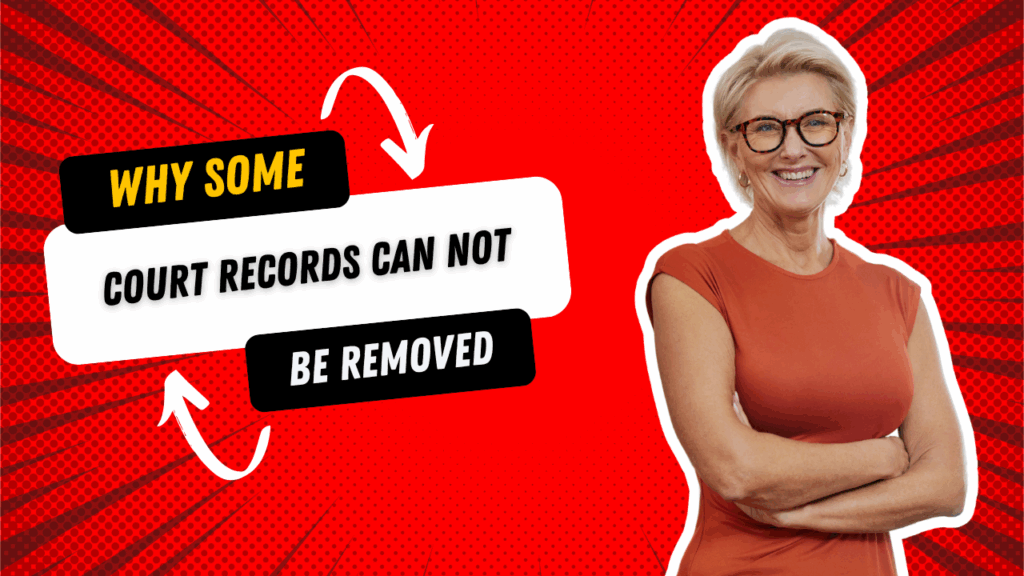Not all court records can be erased from the internet. Whether you’re dealing with a criminal case, a civil lawsuit, or an eviction, some records are simply too public, too persistent, or too legally protected to remove. But that doesn’t mean you’re out of options.
Dig Deeper: How to Remove Court Records from Google Search
Why Some Court Records Are Impossible to Remove
1. Public Record Laws
Court records are public information in most countries, especially in the United States. Government websites publish them as part of the public’s right to access legal information.
- Criminal records, civil cases, and bankruptcy filings are often available to anyone.
- Public record laws allow these documents to be shared, making them hard to delete.
2. News Coverage
If your court case was covered by the news, the articles may stay online indefinitely. News sites are not obligated to remove accurate reporting, even if the case was dismissed or resolved.
3. Third-Party Background Check Sites
Sites like BeenVerified, Whitepages, and Spokeo collect and display public court records. Even if you remove the original record, these sites may continue to list it unless you manually request removal.
4. Legal Restrictions
Some court records are legally required to remain public. Examples include:
- Felony convictions
- Active warrants
- Certain civil judgments
5. Court Decisions and Orders
If a judge has ruled that your case should remain public, it cannot be sealed or expunged. This is common for cases involving serious crimes, fraud, or cases of public interest.
What You Can Do If Your Record Can’t Be Removed
1. Suppress the Record with Positive SEO
If you can’t remove the record, you can at least push it down in search results using search engine optimization (SEO).
- Create a personal website with your name
- Publish positive news articles, blog posts, or press releases
- Optimize social media profiles to appear first in search
2. Request Updates or Corrections
If the record contains incorrect or misleading information, contact the source to request an update or correction.
- Provide proof of dismissal, expungement, or error
- Politely request that they update the content
3. Use Google’s Removal Tools (Limited Cases)
If the court record contains sensitive personal information (like your Social Security number, home address, or financial details), you can request removal directly from Google.
4. Get Legal Advice
If the record is false, defamatory, or violates your privacy rights, you may be able to take legal action.
- Cease and desist letters
- Defamation claims
- Privacy violation complaints
5. Work with a Reputation Management Professional
If you’re struggling to manage your online presence, a reputation management service like Top Shelf Reputation can help:
- Suppress negative search results
- Monitor for new mentions
- Build a strong, positive online image
Final Thoughts
Even if a court record can’t be removed, it doesn’t have to define you. By suppressing negative results, correcting misinformation, and building a positive image, you can take control of your reputation.
Need help? Top Shelf Reputation specializes in managing court records online, even when they can’t be fully removed. Contact us today to take back control of your online image.

